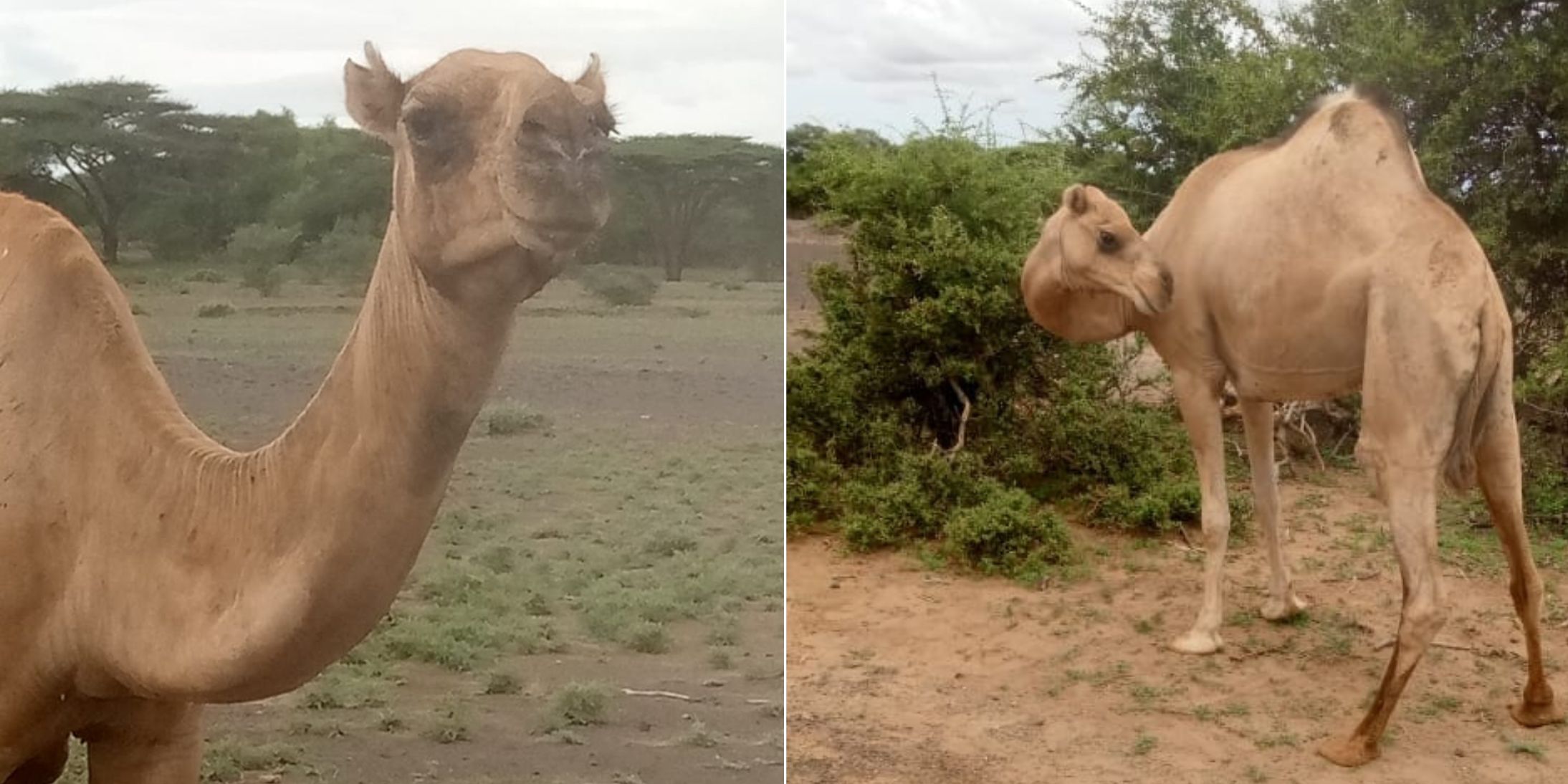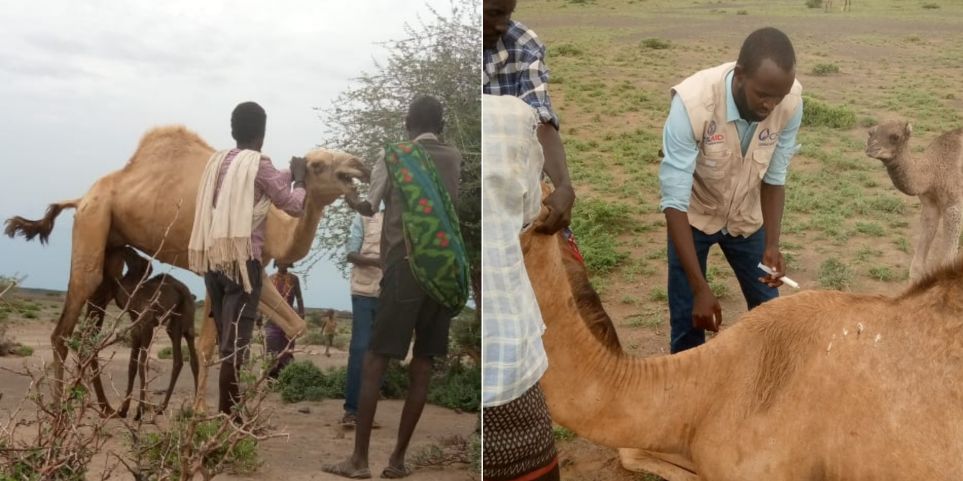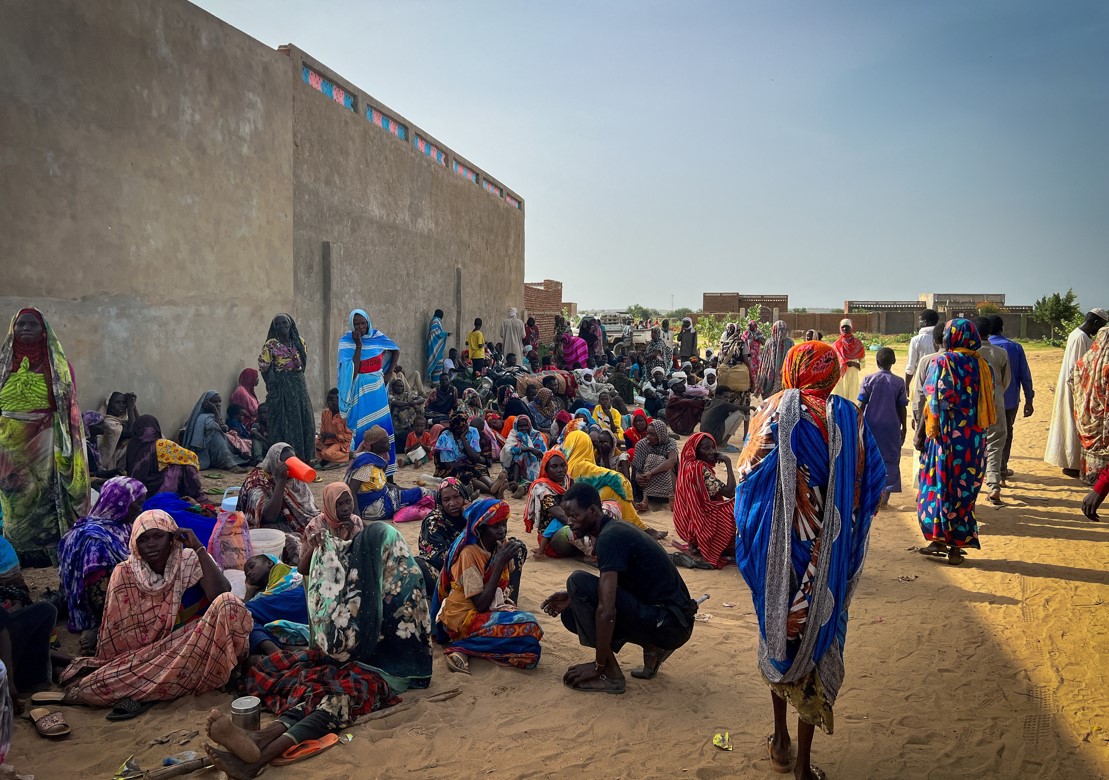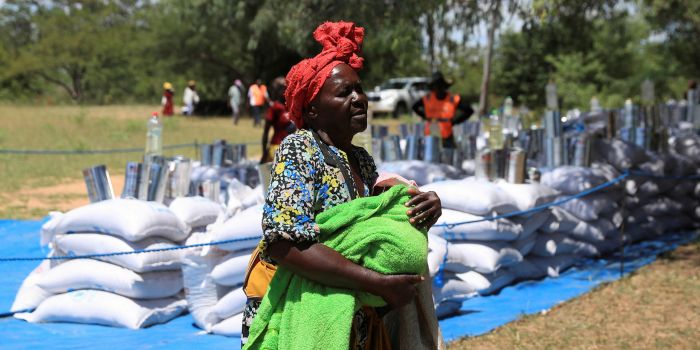Outbreak of mysterious diseases killing camels worries Marsabit pastoralists

By Barack Oduor |
The mysterious diseases were first reported in February of this year, with the Department of Veterinary Services receiving reports on camel deaths.
Pastoralist farmers in northern Kenya are urgently appealing to the national and county governments to intervene in averting the loss of camels to mysterious diseases in the region.
The affected farmers who spoke to The Eastleigh Voice said the diseases, which started with the onset of rains, have seen them lose more than 300 camels worth millions of shillings in value. Boru Ndambala, from Korka Sub Location, North Horr Ward, is among the farmers who lost up to 195 camels to the unknown disease.
Keep reading
"We do not know what is killing the camels. They just get weak and fail to move, then die as a result of fatigue that engulfs all their body parts at the same time," said Ndambala.
He added that the disease is mostly affecting pregnant camels, making them develop stillbirths.
The inability to access veterinary services from the government, caused by logistical hitches and the destruction of bridges as a result of destructive rainfalls, further compounds their plight.
"If we call veterinary officers, they tell us they do not have vehicles and the distance from our villages to North Horr Centre, where they are located, is about 50 kilometres away," Ndambala complained.
Another pastoralist farmer, Tumal Orto, estimated the dead camels to be worth approximately Kshs 23.4 million. He added that up to 610 livelihoods and households were affected in Korka Guda grazing fields and villages.
Orto suspected that the strange diseases could have been brought about by the rains that pounded the Chalbi Desert and villages that pastoralists relied on for their livestock feed and pasture.
"I suspect the disease has something to do with the ongoing raging rainfall because this was not there during the dry period," Orto opined.
The farmer, however, said herders used "tobacco" as a traditional means of treatment, bypassing professional advice given by veterinary officers.
"I once encountered the same experience, raised it with the animal health officers and diligently followed their advice and saved my livestock," said Orto.
He urged the county government to embrace the farmer-to-farmer (F2F) approach to sensitise the livestock farmers.
The mysterious diseases were first reported in February of this year, with the Department of Veterinary Services receiving reports on camel deaths.
 A veterinary officer from Veterinary Sans Frontiers Organisation attends to a a sick camel in Korka Sub Location, North Horr Ward in Marsabit County. Photos (Boru Ndambala- North Horr Ward Camel Keeper).
A veterinary officer from Veterinary Sans Frontiers Organisation attends to a a sick camel in Korka Sub Location, North Horr Ward in Marsabit County. Photos (Boru Ndambala- North Horr Ward Camel Keeper).In the report submitted by Woto Forole, Ward Animal Health Officer based in North-Horr, the disease syndrome gradually killed mature and recently calving/lactating camels belonging to different owners sporadically.
"We received the report through phone calls from the area chief and the local herders and as a department, we visited the area four times between February and April this year to address the issues," reads part of the report.
During the four visits, the vet officers attended to the clinically sick camels with broad-spectrum penicillin-based antibiotics, with the camels "responding well" to the treatment, suggesting that the disease could be linked to bacterial infections or its equivalents.
The strange disease has caught the attention of leaders from the region too, with former Deputy Governor of Isiolo County Simba Guleid and Chairman of Frontier Counties Development Council (FCDC) calling for urgent intervention and support.
"In the specified period, 82 camel owners lost their animals to unidentified diseases in the Korka Guda Grazing Fields in North Horr Ward, Marsabit County, according to a report sent by Tumal Orto, a renowned camel herder," said Simba.
FCDC has been taking the lead in supporting the development of rangeland management policies and legislation to create frameworks for sustainable and holistic management of rangelands and rangeland resources at the county level.
It also developed a regional fodder and pasture strategy (2019-2028) that focuses on the Arid and Semi-Arid Lands (ASALs) Counties of Kenya and covers both natural pasture and cultivated fodder. The strategy has identified specific interventions to fill large feed deficits and meet unmet demand for livestock feed in the ASALs.
The veterinary team has since advised the community not to consume the meat from any affected livestock and to be vigilant and observe animals experiencing laboured breathing, ocular discharges, cough, lameness of rare limbs, loss of appetite, and dehydration. Death, they said, occurs a few days after the disease's onset. Other signs include the failure of camels to respond to treatment.
They further noted with concern that the community treated the animals with 10 per cent oxytetracycline at limited doses, which never gave positive results. Later, the veterinary team recommended the use of broad-spectrum penicillin-based antibiotics.
Currently, sampling of the camels and case-by-case treatment is ongoing, with blood samples to be dispatched to Kabete Veterinary Investigation laboratories for confirmatory diagnosis.



















